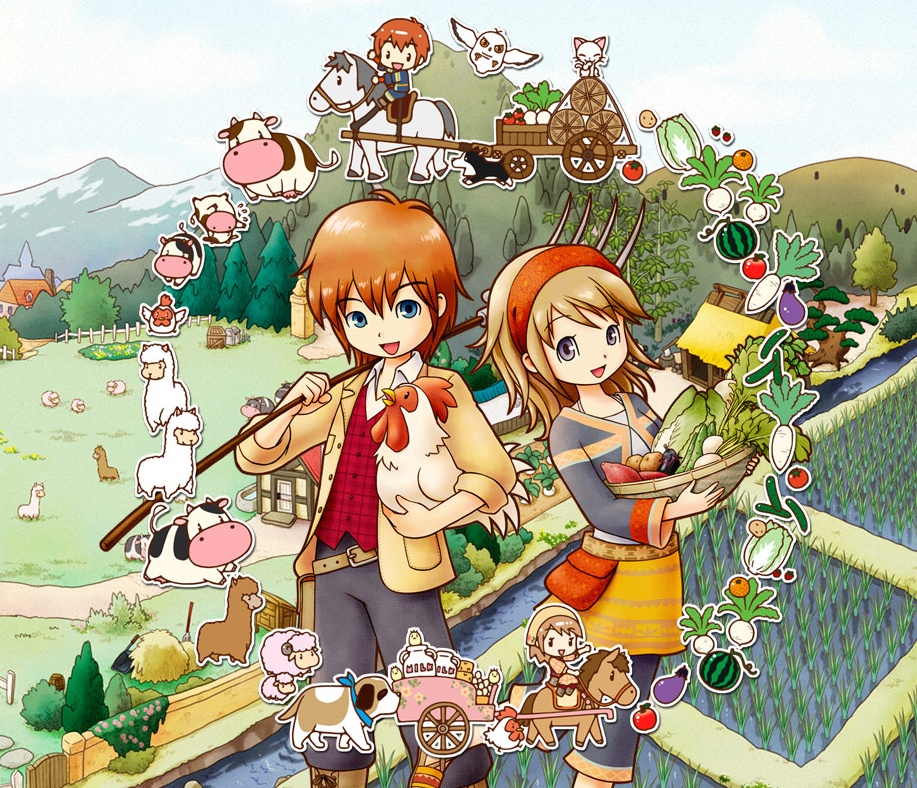
We had tons of loyal Harvest Moon fans, but we couldn't simply say to those loyal fans that there's no Harvest Moon in the future.

"It was a really scary thing to me because we'd spent time and effort to establish a no-name farming simulation game to become one of the best-known farming simulation games for the entire family. "That was a big surprise to us, especially to me," Maekawa said. That's a very important hint, or inspiration to us on what we should do next." "We always listen to what consumers say, and what the media says.
#All harvest moon game series
It couldn't do so under the Harvest Moon name as Natsume owned that, so it re-launched the series as Story of Seasons, leaving Natsume with a valuable brand, but no game to sell using it.
#All harvest moon game software
While the Bokujo Monogatari developer Victor Interactive Software was acquired by Japanese publisher Marvelous and changed names, the partnership continued on new games until 2014, when Marvelous decided it would be better served by publishing the Bokujo Monogatari games in the West through its own subsidiary, XSEED Games. Harvest Moon was originally released in Japan as Bokujo Monogatari, but it was Maekawa who gave the series its English name when Natsume first localized it. However, that business was thrown into upheaval several years ago due to a mix of intellectual property rights. Since then, Harvest Moon has been a mainstay of Natsume's lineup, with 32 titles released.
#All harvest moon game simulator
That title was the family-friendly farming simulator Harvest Moon, which debuted on the Super Nintendo in the US 20 years ago last month. So I said to myself, 'What if I give my distribution partners a special title to which no retailer can say no?' Our distribution partners were the only distributors who had this special title, and it worked." So I visited retailers, and everybody laughed about my idea. For frontline titles, they bought only from the publishing company. "They only bought excess inventory at substantially reduced prices. "This was a big challenge simply because at that time, retailers weren't interested in buying frontline products from a distributor," Maekawa said. and restarted it as a one-person outfit, relying on distribution partners who would have regional exclusivity over Natsume's games. I realized it was impossible, but I couldn't say I was going to close the company." You have to have a warehouse, a warehouse manager, and you have to assume inventory risk at marginal return and price protection. "But soon after, I realized it's very difficult for a smaller company to keep operating in direct sales and distribution.

"At that time, we were selling the video games directly to retailers in the same way as all other publishing companies did," Maekawa told during an interview at E3 last month. The company had five employees at the time, and even that seemed to be unsustainable. was best known for the Super Nintendo's Pocky and Rocky series, which was well-regarded but not exactly a massive hit. in the mid-'90s, the American division of Japan's Natsume Co., Ltd. When Hiro Maekawa took over at Natsume Inc.


 0 kommentar(er)
0 kommentar(er)
